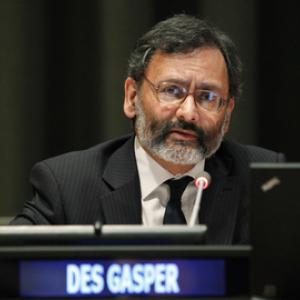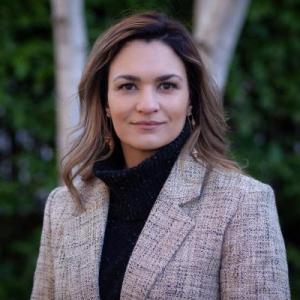Short description:
Brigitte Huber (Ph.D., University of Vienna) is Professor of Marketing at IU International University of Applied Sciences Munich, and external lecturer at the University of Vienna. Her research interests include science communication, social media, influencer marketing, journalism studies, and political communication.
Short description:
Disability Inclusion Expert
Consulting, Mentoring and Coaching
I bring 30 years of experience in disability rights advocacy and disability inclusion public policy and community development in the public, non-governmental, and international development cooperation sectors to my social justice and disability inclusion consulting and coaching services.
Short description:
I received my DPhil in Political Theory from the University of Oxford in 2010. Since then, I have been teaching political philosophy at Sabanci University, Istanbul. I work on issues that lie at the intersection of social epistemology and political philosophy, such as questions of justice in the distribution of knowledge and the role of science in democratic societies.
Short description:
Professor emeritus (2019-), and academic staff member (1983-2019), International Institute of Social Studies, Erasmus University Rotterdam. Degrees: M.A. (University of Cambridge, UK), Ph.D. (University of East Anglia, UK). Worked in Southern Africa 1979-89. Areas of specialization: 1. Development ethics, human development and human security, well-being; with special reference to climate change, and to migration; 2. Methodologies in public policy analysis and evaluation; especially in analysis of policy discourse and argumentation. https://www.eur.nl/people/des-gasper
Short description:
Justin Sulik is an assistant professor in the interdisciplinary Cognition, Values & Behavior lab at Ludwig Maximilian University of Munich. He works on the psychology of science, including the socio-cognitive drivers of science denial, the role of trust in science in individual decision making, how non-experts explain the world around them, and the value of cognitive diversity (especially neurodiversity) in collective problem solving.
Short description:
Dr. Raul M. Abril is a research fellow at KU Leuven, Public Governance Institute and an officer of the European Commission dealing with interoperability related EU policies. He is responsible for a portfolio of interoperability programs in the EC. He has been professor at several universities and been active publishing his research. He holds a doctoral degree (Brunel University, UK), an European PhD Certification (European Doctoral School on Knowledge Management, Denmark), an Ing. Sup. Informatics (UAB, Spain), and a Master in Project Management (The George Washington University, USA).
Short description:
Luciana Cingolani is Assistant Professor of Public Administration at the Hertie School and an affiliate of the Centre for Digital Governance. Her research interests include state capacity building, digital governance, inclusion in eServices and representative bureaucracies. She has supported, among others, the work of the French Development Agency, a Horizon2020 project on public procurement transparency in Europe, the OECD-Sigma initiative and the UNDP. She has a PhD from Maastricht University in the Netherlands and a Master of Public Policy at San Andrés University in Argentina.
Short description:
Tommaso Reggiani is an Associate Professor (Reader) in Economics at Cardiff University | Cardiff Business School,
research fellow at IZA and Masaryk University-MUEEL lab.
Research Interests: Behavioural & Experimental Economics, Public Economics, Ethics & Economics.
Full CV: https://sites.google.com/view/tommaso-reggiani/
Short description:
Research Fellow, King Faisal Center for Research and Islamic Studies; Associate Fellow, Chatham House; Visiting Research Fellow, LSE Middle East Center; VP Research, Arab Institute for Women’s Empowerment, Nusf; Board Member, Johara Global; Advisor, AlThuraya Foundation. PhD, UCL-IOE Sociology of Education; MSc, LSE Development; BA, University of Washington, International Studies.
Short description:
Natascha Wagner is professor of International Economics at the Nijmegen School of Management of Radboud University (Netherlands). She is in charge of the Global Data Lab, which develops databases and instruments for monitoring and analyzing the status and progress of societies. In its current version the database contains 133 indicators for 131 countries and 1483 sub-national regions. Her research interests lie in international economics, development, health and education. She has participated in various impact evaluation projects in Africa and Asia.










